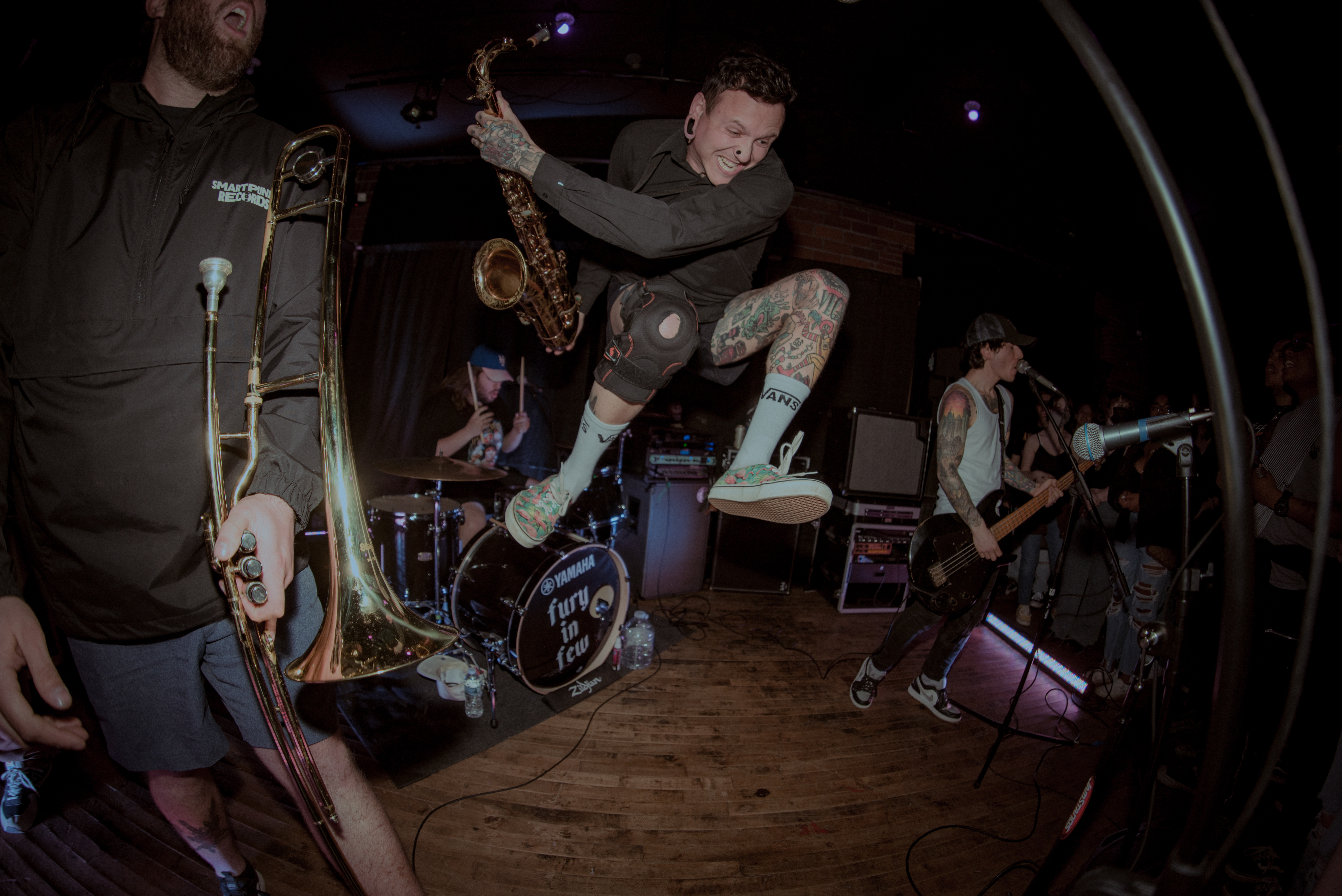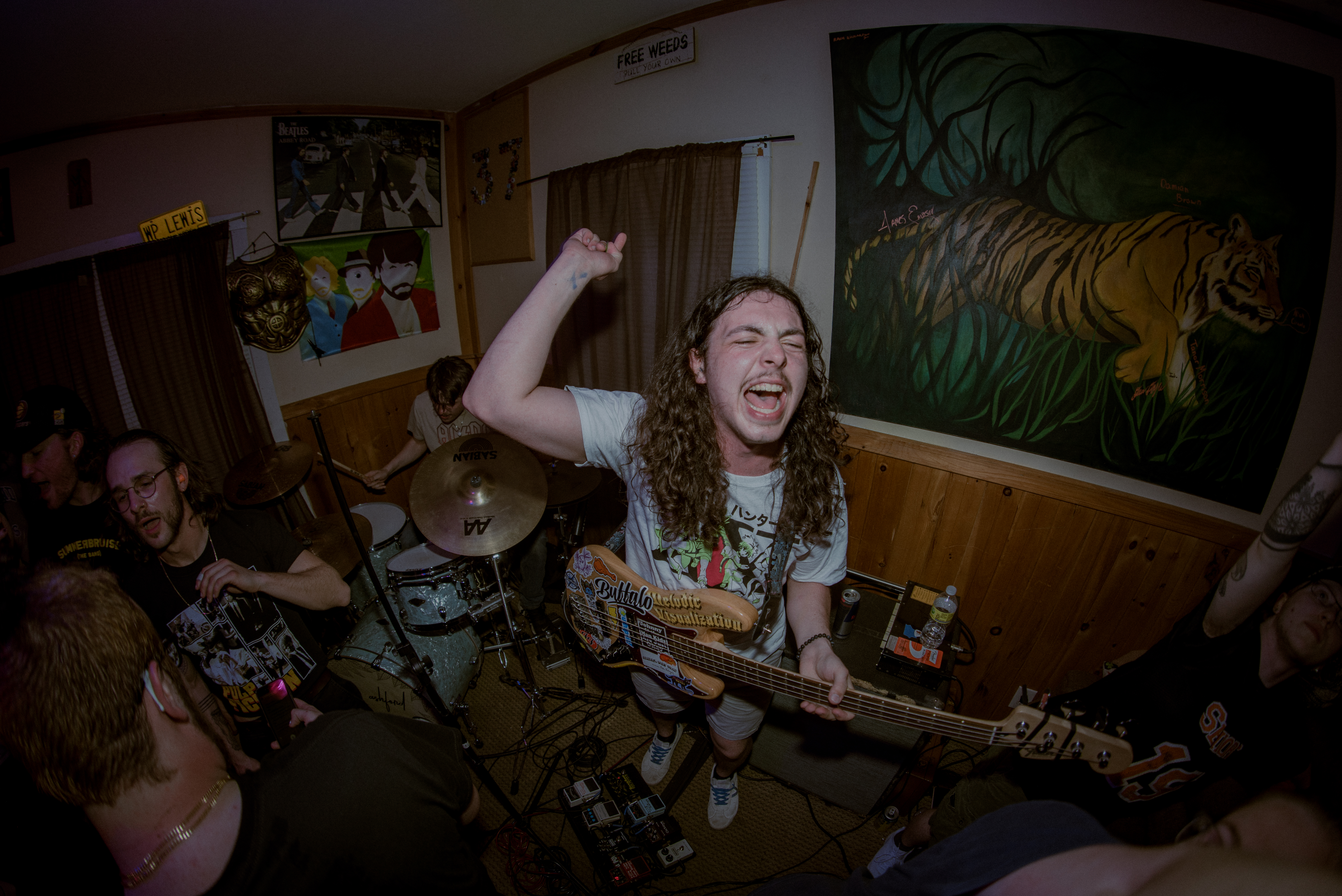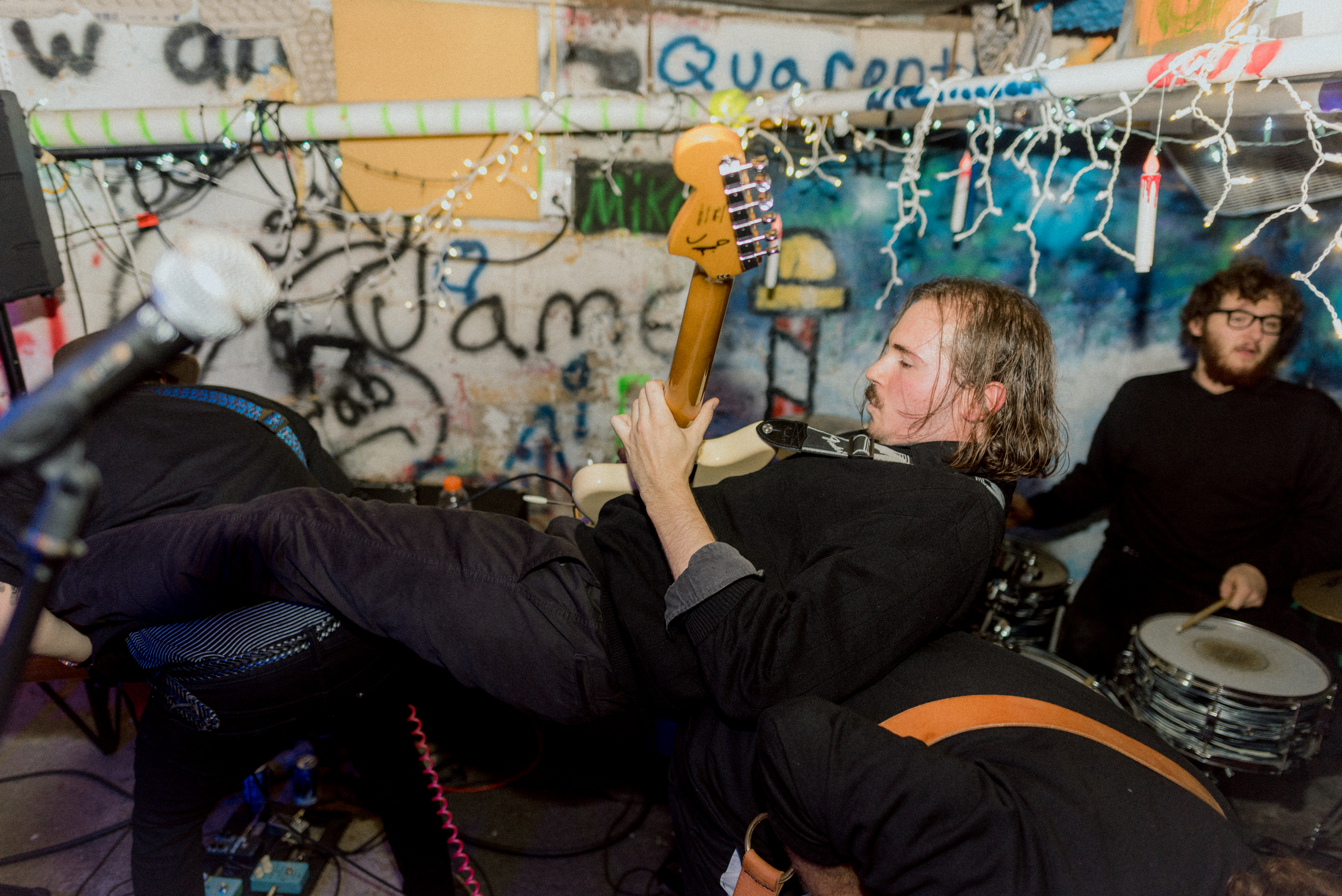
RYAN TERRY
Special to The Leader
This may be a sappy article, sentimental even, but a whirlwind of emotion was felt by myself and many others upon hearing of the closing of the North Pole Strip Club (NPSC) house music venue that I couldn’t shake off, a thundercloud hanging over our collective heads.
I don’t think many who were “in the know” were necessarily surprised by the announcement, but it is one that hit like a truck nonetheless. This music scene has in many ways felt like a home to me when I first got here, a hill to climb, a path to follow.
Looking back at old photos, old setlists, old faces, old Instagram profiles, I kept wondering to myself how we got here and what’s next? Will there be more people coming into this school that will feel the way I and so many others have when we walked onto this campus?
In July of 2019, I came to Fredonia wide-eyed, ready to be a film major, looking about the same as I do today with ambiguous expectations of the next four years. I met my eventual band mates at Jump Start and we got to talking about making music.
The semester started, and I began talking to more people about making music. Then there was a Battle of the Bands which we scrambled to get something together for, naming ourselves Beach Tower. Then there were house shows, clubs, bars, DJ’s, a radio station, a community. A scene.

But, I didn’t know of any of this going in. I came here essentially because of a small scholarship, but I then found myself preparing to switch to music composition after six short months of being here.
I felt nurtured and accepted, like there were people rooting for us and willing to help us prove ourselves, knowing we’d do the same for them when the time came. There were bands and people I admired and thought “I want to do what they’re doing.” It was alive, vibrant and all-encompassing.
And then COVID happened.
In some ways it’s amazing that the scene survived at all following quarantine. Many of Beach Tower’s contemporaneous bands were just getting started and would either dissolve entirely or reshape by the time shows started again. Live music was dead for a year, with the best shot of getting your music heard being online releases and livestream performances.
When the scene came back, it came back in full force, with packed house shows and plenty of teens ready to go deaf, but that was just the band-aid to the wound of a whole year being taken away.

I don’t think it’s the end — as long as there are people who want to make live music and people who want to listen to live music, there will always be a scene in Fredonia. But perhaps it’s the end of an “era.” More and more bands are choosing to record from home over going into the sound recording technology (SRT) studios. Less and less smaller Fredonia-based bands seem to be getting billed for venues like NPSC and BJ’s (with the biggest exception being Jake King & the Wired Band, who I should thank for providing the name of the article).
The focal point of the scene is moving away from the music industry department and becoming more decentralized, at least as far as majors and clubs are concerned. The student body’s involvement in clubs has also greatly decreased, with the number of active members in clubs such as Music Industry Club (MIC) and Sound Services dramatically lowered compared to pre-COVID numbers.
Let’s not dismiss the school’s involvement either. Rhythm N’ Brews’ attendance has gone down, in part because of COVID but also because Tim Hortons isn’t open on the weekends anymore. The event can still be held on the Tim Hortons’ stage, but audience members no longer can purchase coffee — “brews” — and treats while listening to the musicians’ “rhythms.”
In years past, bands would also set up in the amphitheater in the Reed Library and Maytum Hall plaza for whoever passes by. Now, the plaza’s gated off and under construction. The lowering attendance and closing of amenities has certainly not helped either. The school’s involvement in the scene has always been tenuous at best aside from being an excuse for a lot of creative people to be around each other, but these developments have actively hindered the growth of the school, and by extension the scene and the clubs and groups that prop it up.
Also, not to ignore the obvious, the artists that make up the scene are overwhelmingly male and mostly white. These problems extend beyond the area into the music industry at large, but that does not absolve us of our own part in that and is something that must change as a new scene forms.
But let’s not only be negative. Local Lo-Down, a radio show on fredoniaradio.com, is back in full swing with fantastic interview and live performance content, and new bands like Edelwood Creek, Wired, Dylan Murawski and Hal & Pals are getting their due through club and house show appearances thanks in part to MIC. Furthermore, rumor has it that the Creek House, a former house music venue, might be making a surprise return.
So many incredibly talented people walk the sidewalks of this brutally designed campus, attempting to build something larger than themselves. But whatever the scene that comes next looks like, it needs to be our own. We must learn from the successes and not repeat the failings of those that came before us, and the same will be said for the ones that will hopefully come after.
– Ryan Terry
To make a more diverse and stable future for our music halls means embodying that now, when the future is uncertain but inevitable. Prop up smaller bands, go to their shows and support when you can, and tune into club content centering the talent being fostered in this town. To rob any student coming here of the feeling and support my class felt in this music scene would be a future unfitting of ourselves and those who came before us.
